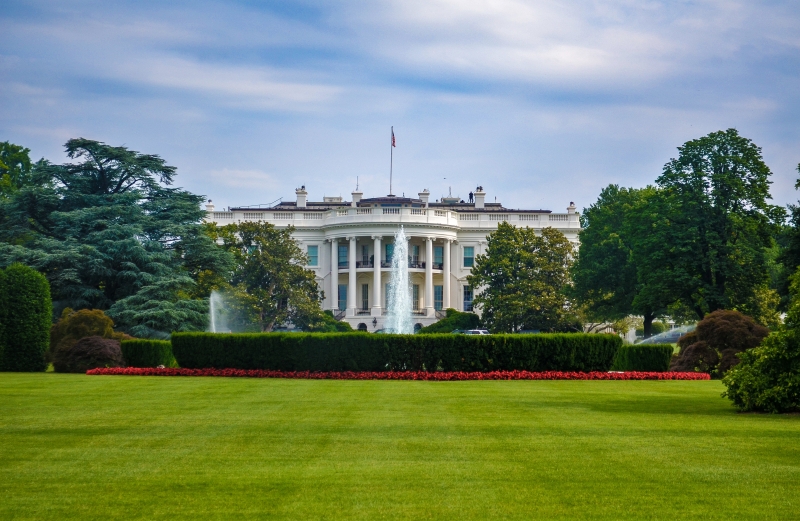
- Details
- By Native News Online Staff
WASHINGTON — With the support of the Navajo Nation, Lezmond Mitchell, the only American Indian on death row, is seeking presidential clemency from President Donald Trump. Mitchell faces execution on Aug. 26 without intervention.
Navajo Nation President Jonathan Nez and Vice President Myron Lizer personally appealed to the president to request clemency for Mitchell in a letter sent to the White House.
President Nez is scheduled to appear before the U.S. Pardon Attorney later today to personally advocate on behalf of Mitchell’s petition for executive clemency.
In a letter, President Nez and Vice President Myron Lizer called on the American president to demonstrate respect for the Navajo Nation’s tribal sovereignty by commuting Mitchell’s sentence to life imprisonment with no possibility of release.
The letter pointed to the tribe’s steadfast opposition to Mitchell’s execution in light of the tribe’s long-standing position on the death penalty for Native Americans.
“The United States Department of Justice sought the death penalty against Mr. Mitchell despite the Navajo Nation’s public opposition, against the express wishes of the victim’s family, and ostensibly against the recommendation of the U.S. Attorney for the District of Arizona,” the letter said. “The Navajo Nation is respectfully requesting a commutation of the death sentence and the imposition of a life sentence for Mr. Mitchell. This request honors our religious and traditional beliefs, the Navajo Nation’s long-standing position on the death penalty for Native Americans, and our respect for the decision of the victim’s family… We need to address this issue to move forward in our trust of our federal partners and to continue to work on the importance of protecting our People.”
Mitchell’s clemency petition, filed on July 31, similarly urges President Trump to respect the long-standing opposition to his death sentence from the Navajo Nation, as well as the family of his victims. The clemency petition is available here.
The clemency petition highlights how Mitchell’s case involves an unprecedented overreach by federal authorities to usurp tribal sovereignty and represents the only time the federal government has pursued a death sentence against a Native American person over tribal opposition.
An amendment to federal law that Congress passed in 1994 requires the government to obtain tribal consent for a capital prosecution for a murder on tribal land. In 2001, Mitchell, who was 20 years old at the time, and a juvenile co-defendant, both Navajo, killed two other Navajo people on land within the Navajo reservation. The Navajo Nation wrote to the government to oppose a capital prosecution, explaining that “Navajo cultural and religious values… do not support the concept of capital punishment.”
Members of the victims’ family also opposed seeking a death sentence against Mitchell, later explaining that “we do not need another murder [execution of Mitchell] for our family to heal or feel better.” In light of the tribe’s and victims’ opposition, the local U.S. Attorney’s office in Arizona then recommended against a capital prosecution.
But the federal government obtained a death sentence against Mitchell anyway. It did so by exploiting a loophole in the law, charging him not with murder – which would have required tribal consent – but with “carjacking resulting in death,” a federal crime of general jurisdiction that does not depend on the crime being committed on tribal land and does not require tribal consent for the government to seek a death sentence.
In addition to the letter from Navajo President Nez and Vice President Lizer, past letters from Navajo Nation officials opposing Mitchell’s death sentence were submitted with the clemency petition and can be accessed here:
2002 letter from Navajo AG Levon Henry asking the federal government not to seek death.
2004 Navajo Public Safety Committee Report electing not to opt into the federal death penalty.
2014 letter from Navajo AG Harrison Tsosie and letter from Chief Justice Herb Yazzie.
More Stories Like This
Native News Weekly (August 25, 2024): D.C. BriefsNavajo Nation Mourns the Passing of Former Vice President Rex Lee Jim
Deb Haaland Earns Endorsement From Communications Workers of America Local 7076
University Soccer Standout Leads by Example
Two Native Americans Named to Democratic Congressional Campaign Committee's“Red to Blue” Program
Help us defend tribal sovereignty.
At Native News Online, our mission is rooted in telling the stories that strengthen sovereignty and uplift Indigenous voices — not just at year’s end, but every single day.
Because of your generosity last year, we were able to keep our reporters on the ground in tribal communities, at national gatherings and in the halls of Congress — covering the issues that matter most to Indian Country: sovereignty, culture, education, health and economic opportunity.
That support sustained us through a tough year in 2025. Now, as we look to the year ahead, we need your help right now to ensure warrior journalism remains strong — reporting that defends tribal sovereignty, amplifies Native truth, and holds power accountable.
 The stakes couldn't be higher. Your support keeps Native voices heard, Native stories told and Native sovereignty defended.
The stakes couldn't be higher. Your support keeps Native voices heard, Native stories told and Native sovereignty defended.
Stand with Warrior Journalism today.
Levi Rickert (Potawatomi), Editor & Publisher

